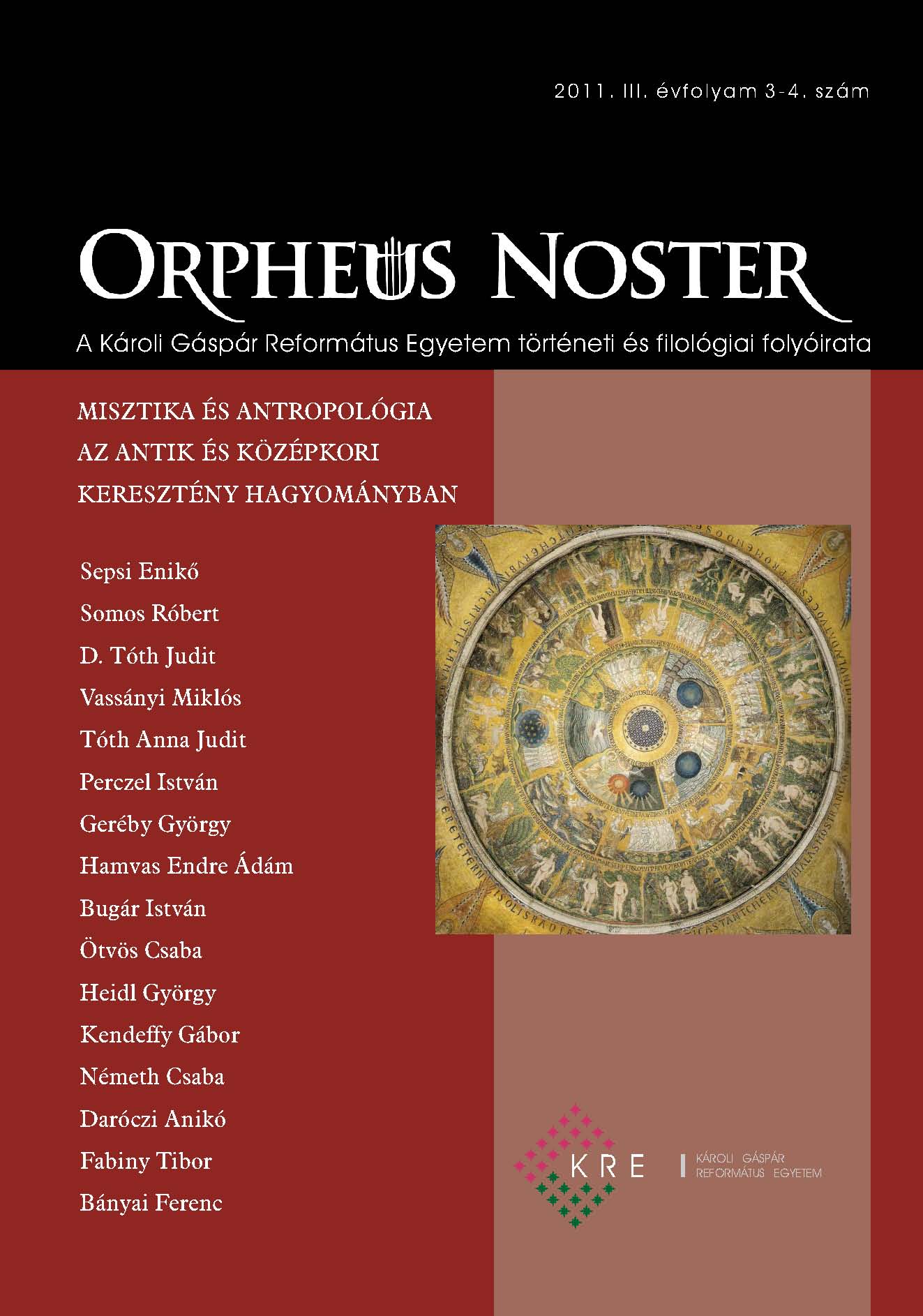A pogányság mint könyves vallás a kora-bizánci forrásszövegekben
Paganism as a Religion of the Book in Early Byzantine Sources
Author(s): Anna Judit TóthSubject(s): Christian Theology and Religion, Philosophy, Theology and Religion, History of Religion
Published by: Károli Gáspár Református Egyetem
Keywords: Christianity and paganism; John Malalas; John Lydos; Byzantine age
Summary/Abstract: The last centuries of Antiquity represent a very unusual era in the history of religions: a great part of the Roman population was not Christian, and consequently, they should be considered as pagans, but every form of the ancient cults was prohibited, so the religion survived without any of its basic institutions. In the article, I examine on the examples of a Christian and a pagan author how these changes distorted their views about the old religion. The views of the Christian chronicler John Malalas can be summarized as follows: 1. paganism is a universal religion, there are no differences among the respective cults of the involved peoples. The name of this religion is Hellenism, and it originated from Persia and Egypt. 2. Malalas has a coherent theory about the genesis of religions: the cults of the kings (Euhemerism) and of the planets developed into the adoration of idols. 3. The alleged doctrines of paganism derive from theurgy and magic. 4. According to Malalas, most aspects of paganism are similar to Christianity: paganism has its own prophets (Hermes Trismegistus, Orpheus), dogmas, sacred writings and it has even its own heretics. Although the chronicle misrepresents the classical religions, its picture may seem less distorted from the perspective of the pagans of the 6th century. John Lydos, a contemporary of Malalas, is the last author who wrote complete books on the old religions. Although he was pagan, he shared a great part of his religious ideas with Malalas. For Lydus the core of the pagan Weltanschauung is Neoplatonism and Pythagorean mysticism-something that was legal in his age. Both authors are particularly interested in the secret names of planets, cities etc. They give a detailed description of the cosmic symbolism of the hippodrome. Both of them would admit that the ancient rituals were connected first and foremost with the worship of the celestial bodies. Lydus often cites Sibyllas and Chaldean prophecies-texts which were acceptable for the Christian chronicler as well.
Journal: Orpheus Noster. A KRE Eszme-, Kultúr-, és Vallástörténeti Folyóirata
- Issue Year: III/2011
- Issue No: 3-4
- Page Range: 36-44
- Page Count: 9
- Language: Hungarian

